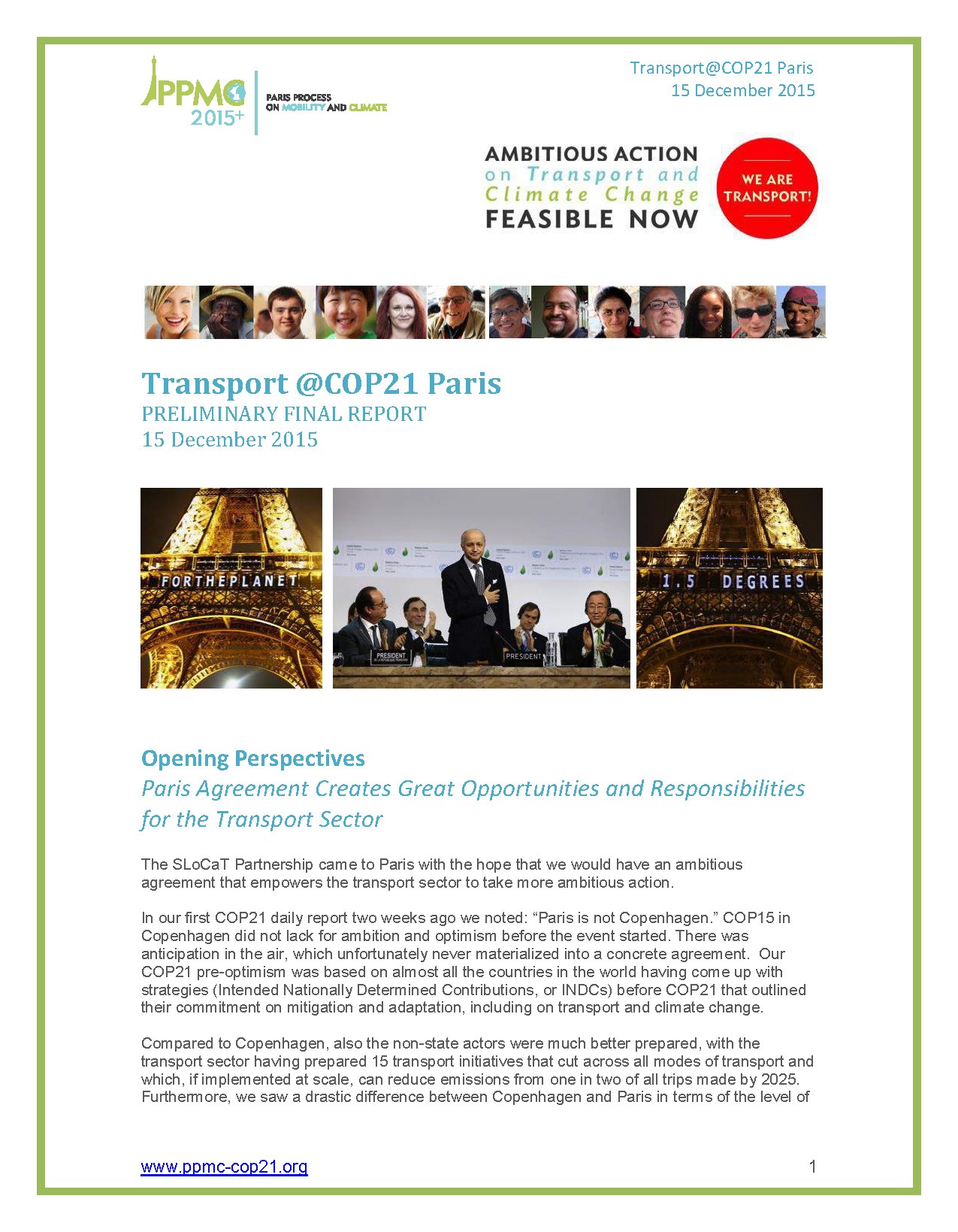Engagement at COP21
The 2015 UN Climate Change Conference in Paris (COP21) represented a historic opportunity to fully integrate the transport sector within the UNFCCC process in order to reverse the trend of growing emissions and mitigate climate change, while making transport infrastructure and services more resilient to climate impacts already underway. Transport plays an elevated role within the UNFCCC process for both pre-2020 ambition and post-2020 action, as countries are pledging significant contributions to emissions reductions from the transport sector within their INDCs, and discussions on technology transfer, climate finance and capacity-building would also have a significant impact on the capacity of countries worldwide to scale up sustainable transport initiatives. COP21 addressed key topics such as fossil fuel subsidy reform and increased accountability for emissions generated in the aviation and maritime industries.
